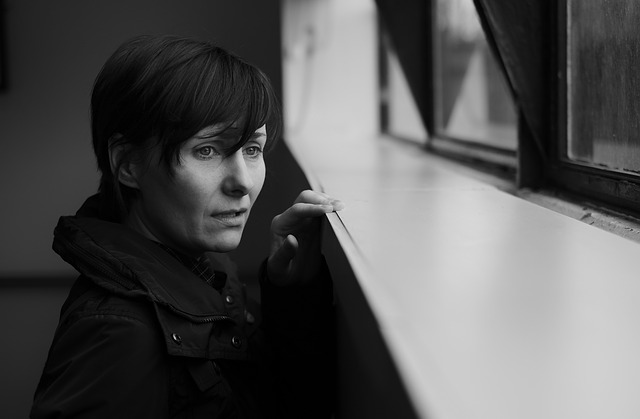Never The Same, But...
By Pete Reinl, CSG, Director of Grief Support Services for Church and Chapel Funeral Homes
 Life, family and the world seemed so strange after mom died. When she died I had no living parents, as dad died just three years prior. They both died at the early age of sixty-five. There was no going back home. There was no place to call "home" anymore. Family gatherings became sporadic and, when we did get together, they were awkward. The once jovial gatherings weren’t so jovial anymore. I remember longing for the family experience we once had. I wanted to hear the laughter, the teasing and the joking. I wanted to play cards (Cribbage or Sheepshead) and sit around the kitchen table discussing world news, Packer news and news about each other. I wanted to nibble from the pots sitting on the stove and take in the familiar aroma of what was inside. At that time, “healing in grief” meant I would somehow recapture that same sense of joy, that same sense of belonging and security and warmth. Of course, I tried to reconstruct them but they always felt hollow. My expectation was that over time I would once again know and have those exact feelings. I never did and, I know now I never will. Truth be told, although I have indelible, treasured memories (ones I can virtually taste and touch), to my surprise I have also experienced great joy, belonging, security and warmth on a much deeper, perhaps even a richer level since then, albeit different, than I ever thought possible again.
Life, family and the world seemed so strange after mom died. When she died I had no living parents, as dad died just three years prior. They both died at the early age of sixty-five. There was no going back home. There was no place to call "home" anymore. Family gatherings became sporadic and, when we did get together, they were awkward. The once jovial gatherings weren’t so jovial anymore. I remember longing for the family experience we once had. I wanted to hear the laughter, the teasing and the joking. I wanted to play cards (Cribbage or Sheepshead) and sit around the kitchen table discussing world news, Packer news and news about each other. I wanted to nibble from the pots sitting on the stove and take in the familiar aroma of what was inside. At that time, “healing in grief” meant I would somehow recapture that same sense of joy, that same sense of belonging and security and warmth. Of course, I tried to reconstruct them but they always felt hollow. My expectation was that over time I would once again know and have those exact feelings. I never did and, I know now I never will. Truth be told, although I have indelible, treasured memories (ones I can virtually taste and touch), to my surprise I have also experienced great joy, belonging, security and warmth on a much deeper, perhaps even a richer level since then, albeit different, than I ever thought possible again.
 I recently asked a grieving woman what she imagined healing in grief might look like for her. She responded, “To feel joy again.” I asked her to describe joy. After listening to her description, I asked if that’s the kind of joy she remembered prior to her loved one’s death. Indeed, it was. To which I replied, “You’ll never feel that kind of joy again – that’s part of what you’re grieving. But, that doesn’t mean you can’t experience joy and, perhaps, experience it on a deeper level.” Of course it won’t be the same joy, it can’t be and to expect to recreate and mirror the same joy is to experience one disappointment after another (commonly known as resistance and denial which leads to suffering). That joy is reserved for that person and that relationship. It is sacred ground – consecrated – and we were amazingly fortunate to have experienced such joy. It serves as a tender, sincere and heartfelt memory, something no one can take away from us but also something we cannot resurrect. We will come to recognize joy again because we tasted it with our loved one (a gift from them,) but the joy we now experience will be different.
I recently asked a grieving woman what she imagined healing in grief might look like for her. She responded, “To feel joy again.” I asked her to describe joy. After listening to her description, I asked if that’s the kind of joy she remembered prior to her loved one’s death. Indeed, it was. To which I replied, “You’ll never feel that kind of joy again – that’s part of what you’re grieving. But, that doesn’t mean you can’t experience joy and, perhaps, experience it on a deeper level.” Of course it won’t be the same joy, it can’t be and to expect to recreate and mirror the same joy is to experience one disappointment after another (commonly known as resistance and denial which leads to suffering). That joy is reserved for that person and that relationship. It is sacred ground – consecrated – and we were amazingly fortunate to have experienced such joy. It serves as a tender, sincere and heartfelt memory, something no one can take away from us but also something we cannot resurrect. We will come to recognize joy again because we tasted it with our loved one (a gift from them,) but the joy we now experience will be different.
Discovering the new normal that grievers hear and read so much about goes well beyond creating a new outside world. It is, in fact, more about reforming and reframing our interior. The deeper, more profound aspect of creating our new normal has to do with our “insides.”

This includes
- - establishing a new identity
- - discerning the meaning we now give to life and living
- - uncovering what joy, belonging, security and warmth might now be for us
- - finding purpose, hope, desire and dreams
- - redefining and experiencing love, happiness, wonder and awe
All of these changes will be different from before but can be no less meaningful and powerful and life-giving as long as we don’t compare and try to refabricate what once was. The operative word in this case is “can” because we have a choice in how we will heal, who we will become and what our lives will look like.
I recently spoke with a gentleman, and the topic of “feeling one hundred percent” came up. He expects he’ll never again experience again his version of 100% since his wife died. I agreed, he won’t ever feel that same 100% again. This fact alone is a great loss worthy of honoring through grieving. But, that isn’t to say he won’t or can’t feel 100% again. It will be defined differently and will look different than what his 100% once was. He will never experience a sunrise or a sunset as he did with his wife. How could he? But he can experience an incredible sunrise/sunset through the wonder-filled eyes of a grandchild, with the heart of a dying friend, with the companionship of a sibling, or through the love of a child in a way he could never have experienced with his wife. In fact, his full reception of a new sunrise and sunset with others will have been formed in part by his experience with his wife. But, and here is where legacies are made, the gift he leaves is in creating new memories for the person he’s with, whether that is joy, a belonging, a sense of safety and security, or a warmth that can never be recreated again.

My point:
We create barriers, we hamper and we sabotage our healing in grief by having expectations (subtle and blatant) that we can somehow recapture and find the same meaning to life experiences as we once had. We hinder and disrupt our healing when we conclude “if we can’t experience the same joy (or other feelings) we once had we’ll never, ever be able to experience a deep joy again.” We impede and interfere with our healing when we do not surrender to, or are not open to, the possibility of seeing and experiencing life and ourselves in a new way. Truth be told, you and I have a responsibility to live completely – we did not die. Yes, a part of us died when our loved one died and, at times, we wish we had died instead of them. But we did not. We have a responsibility to our deceased loved ones, to family members and friends, and, above all, to ourselves, to live fully the life we still have. Perhaps it is cliché, but it holds the truth, how better to honor our loved ones but by the life we choose to now live and the memories we help create for and with others?
Peace,
Pete Reinl
Director of Grief Support Services
Church and Chapel Funeral Homes
414-651-2737
Visit Church and Chapel Funeral Homes on Facebook!
https://www.facebook.com/pages/Church-and-Chapel-Funeral-Homes/430603540319262
About this Post
Posted 09.22.2015





